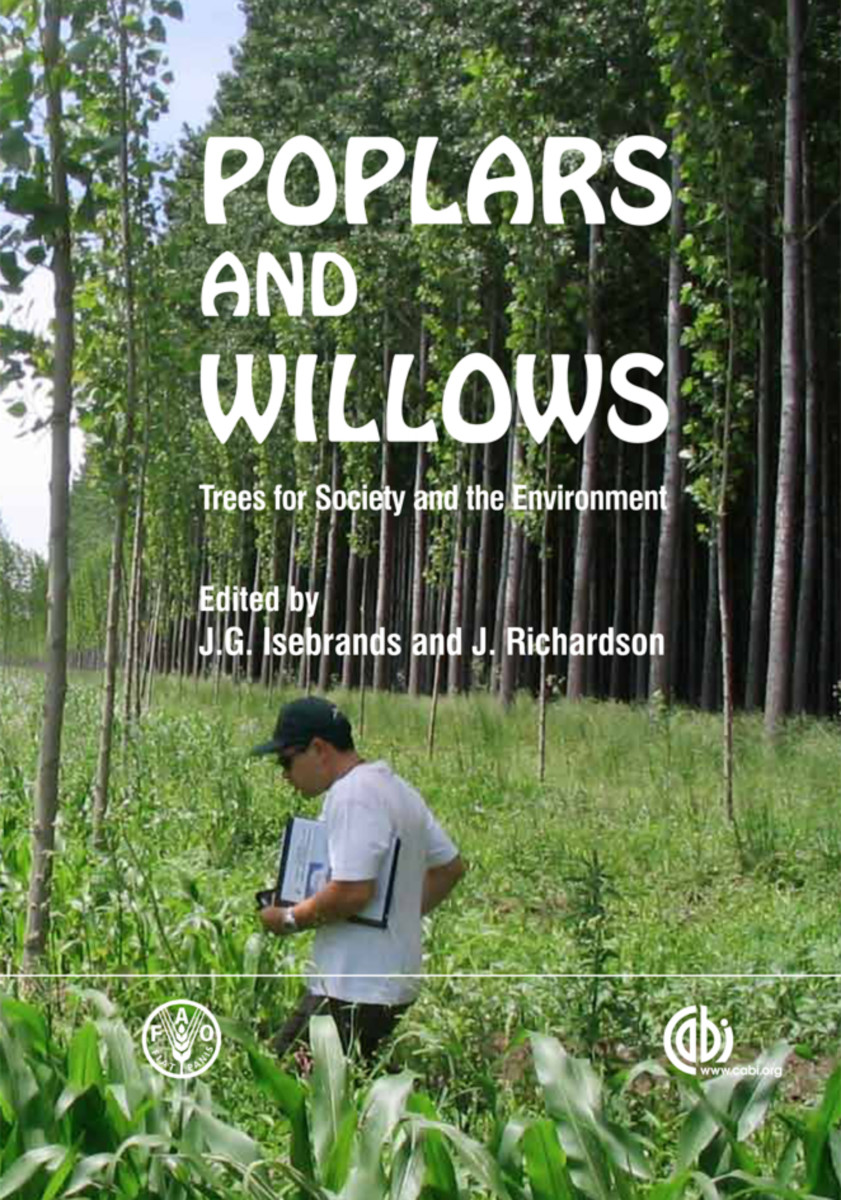Poplars and Willows
Trees for Society and the Environment
- Publisher
CABI - Published
21st March 2014 - ISBN 9781780641089
- Language English
- Pages 650 pp.
- Size 6.875" x 9.75"
- Images 284 illus, full color throughout
Poplars and willows form an important component of forestry and agricultural systems, providing a wide range of wood and non-wood products. This book synthesizes the latest research on poplars and willows in an accessible format, providing a practical worldwide overview and guide to their basic characteristics, cultivation and use, and issues, problems and trends. Prominence is given to environmental benefits and the importance of poplar and willow cultivation in meeting the needs of people and communities, sustainable livelihoods, land use and development.
Co-published with the Food and Agriculture Organization of the UN (FAO).
1. Introduction
2. Poplars and Willows of the World, with Emphasis on Silviculturally Important Species
3. Ecology and Physiology of Poplars and Willows
4. The Domestication and Conservation of Populus and Salix Genetic Resources
5. Operational Poplar and Willow Culture
6. Environmental Applications of Poplars and Willows
7. Abiotic Stresses
8. Diseases of Poplars and Willows
9. Insect and Other Pests of Poplars and Willows
10. Properties, Processing and Utilization
11. Markets, Trends and Outlook
12. Poplars and Willows for Rural Livelihoods and Sustainable Development
13. Epilogue
Glossary
J. G. Isebrands
J. G. Isebrands is native of Iowa and is the President and founder of Environmental Forestry Consultants, LLC in New London, Wisconsin. The company specializes in phytoremediation and short rotation forestry projects with poplars and willows. He has over 40 years experience with research and applications with poplars and willows, first with the USDA Forest Service Research branch and cooperating universities, and now with the private sector. He has been involved with the Short Rotation Woody Crops Operations Working Group (SRWCOWG) since its inception, an active member of the Poplar Council of the United States as well as a member of the Poplar Council of Canada. He is currently on the Executive Committee of the International Poplar Commission of the Food and Agriculture Organization of the United Nations, having served for 15 years and has over 200 publications on poplar- and willow-related disciplines.
Jim Richardson
Jim Richardson is a forestry consultant. A native of Scotland, he received his post-secondary education in forestry at Edinburgh University in Scotland and the University of New Brunswick in Canada. For most of his career he was with the Canadian Forest Service as a silviculture researcher and latterly as manager of a program of research and development on forest biomass production for energy until retirement from the federal public service in 1997. Jim has been active with the Poplar Council of Canada since 1985 as Secretary, Chair and, since 1997, Technical Director. He has been a member of the Executive Committee of the International Poplar Commission (IPC) since 1992. He co-edited the book Poplar Culture in North America, published for the 21st Session of IPC which he helped organize in Portland, OR. Other significant involvements have included IEA Bioenergy and the Canadian Bioenergy Association (CanBio).


